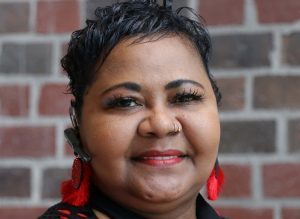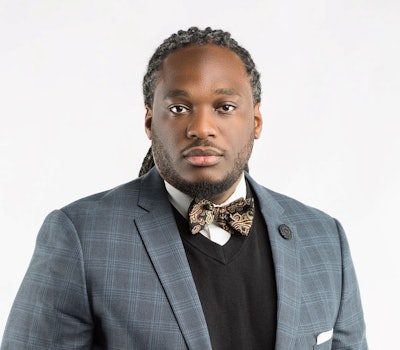Sydney: Around 10 years ago when I was a graduate student, I attended a panel discussion that included the current and former presidents of the disciplinary association facilitating the conversation. All of the panelists were faculty of color. I clearly remember them describing strategies to navigate the tenure and promotion process. I particularly recall them saying how promotion processes were not fair to faculty of color and that they had experienced race-based challenges 20 and 30 years prior, as they went up the ranks. This confused me because they were the leaders of the field who I thought could have significantly influenced standards and expectations of the field, given their prominence and stature within the academy. I wondered to myself, why were they telling us how to navigate these often bias and unfair promotion and tenure (P & T) practices, rather than fighting to transform them. Fast-forward to now, I am a tenured faculty member and understand the complexities of being a Black scholar in the academy.
 Dr. Donna Y. Ford
Dr. Donna Y. FordDonna: As a doctoral student in the early 1990s, I do not recall any formal meetings about the trials and tribulations of being Black and the promotion and tenure process. However, I learned indirectly from being married to the first Black Dean of the College of Education at Cleveland State University and seeing him agonize over two cases where a Black female (Janice Hale) and Black male were denied tenure. Both appealed and were given promotion and tenure after long, drawn out legal battles. Dr. Hale’s case made national news. I am privy to dozens of cases where other Black faculty have had to seek legal counsel to challenge their university’s decision; in all of the cases, they ‘won’, but it was a pyrrhic victory. Should they now stay and feel continued awkwardness among their colleagues, or try to leave, knowing that the prospective institution would be aware of their lawsuit? Unfortunately, fighting for promotion and tenure can limit future options, even after winning what is deserved. Racial battle fatigue is undeniable.
Recently, the tenure denials of faculty such as Sibrina Collins at the College of Wooster, Lorgia García-Peña at Harvard University, Paul Harris and Tolu Odumosu at the University of Virginia, and Ashley Woodson at the University of Missouri at Columbia, have reignited a conversation about the role of bias in tenure and promotion processes. But also, the role of tenured senior faculty of color in not only mentoring their junior colleagues, but also working to disrupt and revise these processes. Reimagining these processes in a way that is grounded in equity and justice, we offer a few recommendations.
Serve on P & T Committees. It is important that senior faculty of color serve on and chair promotion and tenure committees at every level of the university. In this capacity, we are able to provide additional context to our colleagues about the value and impact of work that addresses our communities, along with the barriers and challenges. Dr. Brittany Cooper of Rutgers University put it this way:
“I have a seat at the table because I have a PhD. And I am angrier every time I leave the table, I fought my whole life to have a seat at before I was there. Because I have a front row seat to see people invested in White Supremacy do levels of structural violence to our communities that we won’t get out of for generations because we don’t have the power to solve it. So, I am not invested in the myth of being at the table… It doesn’t mean anything if I don’t have the power to structurally transform the institutional conditions that people who are not at the table face”.
 Dr. Sydney Freeman, Jr.
Dr. Sydney Freeman, Jr.In addition to serving on P & T committees, it is important that we be members of and engaged on school, college, and university-wide faculty affairs committees and faculty senate. This is often where P & T policies and procedures are established. Read in depth the policies and procedures; they are a bible of sorts. When discussing revising these policies and procedures, committee members should be asked to familiarize themselves with resources such as Patricia A. Matthew’s book, Written/Unwritten: Diversity and the Hidden Truths of Tenure, Crystal Chambers and Sydney Freeman Jr’s article, To Be Young, Gifted, and Black: The Relationship between Age and Race in earning Full Professorships, and Yolanda Flores Niemann, Gabriella Gutiérrez y Muhs, and Carmen G. González’s book, Presumed Incompetent II: Race, Class, Power, and Resistance of Women in Academia.
Serve as external reviewers. Minoritized faculty frequently experience questions by their institutional peers and external reviewers about the quality and rigor of their teaching, service, and scholarship if it centers on minoritized communities. In particular, there are questions around choice of academic outlets if they exclusively publish scholarship that uplifts marginalized people and communities and if they publish in non-mainstream journals, which are often deemed less well-known/established and prestigious to White decision makers. It is important that senior scholars of color serve as external reviewers to clearly communicate the importance of such journals and push back on the deficit views of our research focus and scholarship. We must be advocates who speak up and stand up.
Challenge the role of teaching evaluations. It is important to encourage junior faculty to find ways to enhance their teaching through various forms of professional development, such as feedback through peer teaching observations and seminars offered by teaching and learning centers. However, many of our minoritized faculty teach classes that address issues of race, gender, and other topics that can be deemed controversial. Professors at any stage of their career often receive overly harsh teaching evaluations from students in these courses. Untenured faculty are particularly vulnerable to such negative evaluations. We, as senior scholars, must challenge the weight placed on these evaluations and encourage our institutions to not penalize minoritized faculty for raced-based biases that come with being Black and teaching predominantly White students, some of whom have never had a Black professor, do not want a Black professor, and do not want to take the course.
Push for bias training. All individuals who participate in the P & T process should participate in implicit and explicit bias training. Too often, we have seen instances where women and faculty of color have been evaluated unfairly in comparison to their other peers with similar and comparable records. We have also witnessed minoritized faculty out publish their peers but still be denied promotion and tenure. We encourage readers to view and share this panel session on the challenges with recommendations:
To conclude, one of the invaluable of aspects of being a tenured senior faculty is having a voice. We must use this and our experiences and resources to literally speak up and challenge policies and procedures, along with attitudes that deny P & T to minoritized junior faculty. The scholars above and thousands of others denied and fighting the uphill battle for P & T are relying on us.
Dr. Sydney Freeman, Jr. is an associate professor of Higher Education Leadership and Qualitative Research at the University of Idaho.
Dr. Donna Y. Ford is a Distinguished Professor of Education and Human Ecology and Kirwan Institute Faculty Affiliate at The Ohio State University’s College of Education and Human Ecology.


















